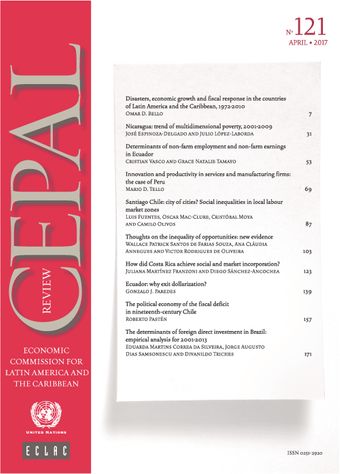-
Thoughts on the inequality of opportunities: New evidence: Wallace Patrick Santos de Farias Souza, Ana Cláudia Annegues and Victor Rodrigues de Oliveira
- Source: CEPAL Review, Volume 2017, Issue 121, Oct 2017, p. 103 - 121
- Spanish
-
- 23 Oct 2017
Abstract
This article evaluates the effects of a set of variables on the inequality of opportunities in Brazil, using the method developed by Li, Chen and Gao (2011) and combining data from the National Household Survey (PNAD) and Finanças do Brasil (FINBRA) on the Brazilian states for 1995-2012. The results show that economic growth has become less important in that debate than other conditioning factors over the last few years. The current pattern of education spending contributes to the maintenance of social vulnerability, thereby making it harder for individuals to participate fully in society. In contrast, increases in formal education and formalization have made opportunities less unequal.
© United Nations





